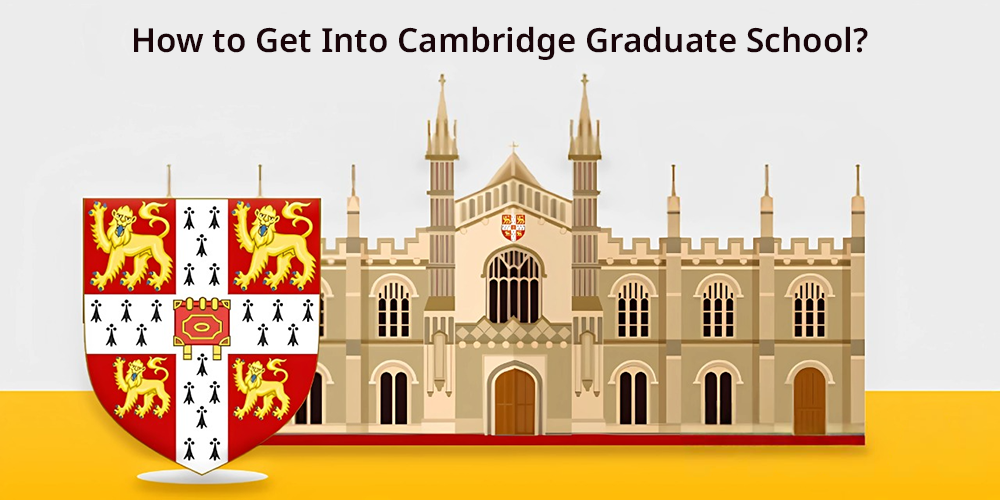
World recognized institution is Cambridge graduate school.
It is known for its rigorous cutting edge research, academic record.
But only few people know about Cambridge.
It is a rigorous process to gain admission in Cambridge.
It requires exceptional academic performance, strong application materials, and thorough preparation to get admission for this competitive school.
So, why are we reading this all along?
The guide will walk you through the admission requirements, application process, and help you develop all the strategies to increase your chances of acceptance. If you are willing to pursue your master or doctoral at Cambridge University.
Let’s start basic by :
Contents
- 1 Understanding Cambridge’s Admission Requirements
- 2 Academic Qualifications and GPA Expectations
- 3 Required Standardized Tests (GRE, GMAT, etc.)
- 4 How to Choose the Right Program?
- 5 Tips for Crafting a Strong Application
- 6 How to Take Care of the Application Process and Deadlines
- 7 Scholarships and Financial Aid
- 8 Interview Process
- 9 Conclusion
Understanding Cambridge’s Admission Requirements
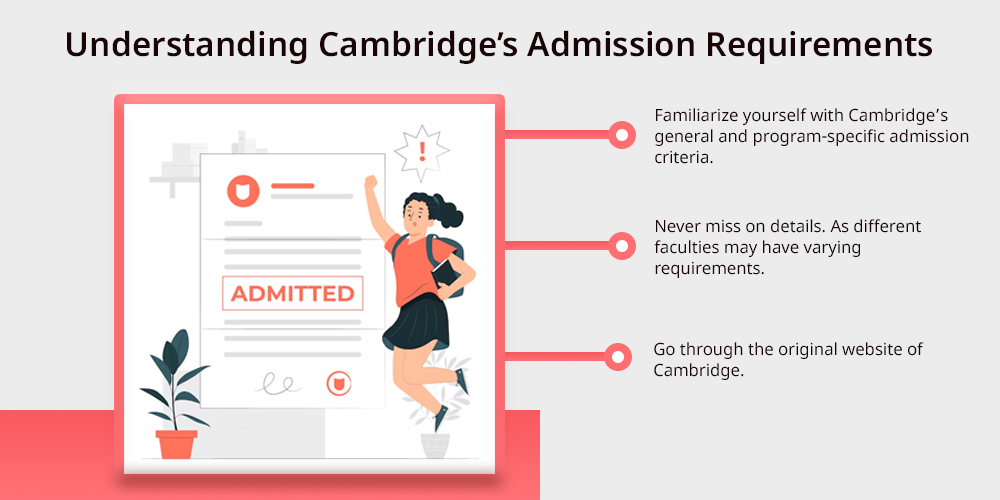
So, the very first step is to know things that are unconventional.
It is essential to familiarize yourself with Cambridge’s general and program-specific admission criteria before applying to Cambridge.
Some students feel regret for their failure in Cambridge as they do not go with the deep knowledge of admission procedure in Cambridge.
Never miss on details.
As different faculties may have varying requirements
Go through the original website of Cambridge and do not rely on fake websites.
Look for authenticity.
However, some general prerequisites apply to most graduate programs.
Academic Qualifications and GPA Expectations
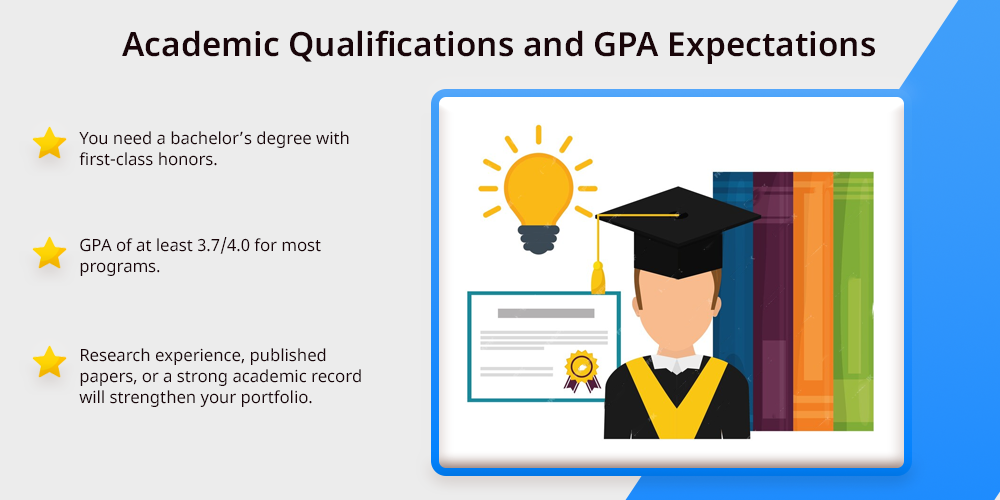
Cambridge seeks applicants with an outstanding academic record.
It’s always above the line and the institution compromises on any part of it.
The University’s minimum academic requirement is a 2:1 (upper second class) UK Bachelor’s Honours Degree or the international equivalent. Many of our courses require a higher level, such as a high 2:1 or a 1st class UK Bachelor’s Honours Degree or the international equivalent.
However, competitive programs may expect an even higher GPA.
So, just in case you are average or mediocre, play harder and smarter.
If your undergraduate degree is from a different academic system, go through the undergraduate program in uk.
Not every standard marking is acceptable by the cambridge.
Having research experience, published papers, or a strong academic record will strengthen your portfolio.
Relevant work experience, particularly for business, law, or policy-related degrees is required by some programs.
Required Standardized Tests (GRE, GMAT, etc.)
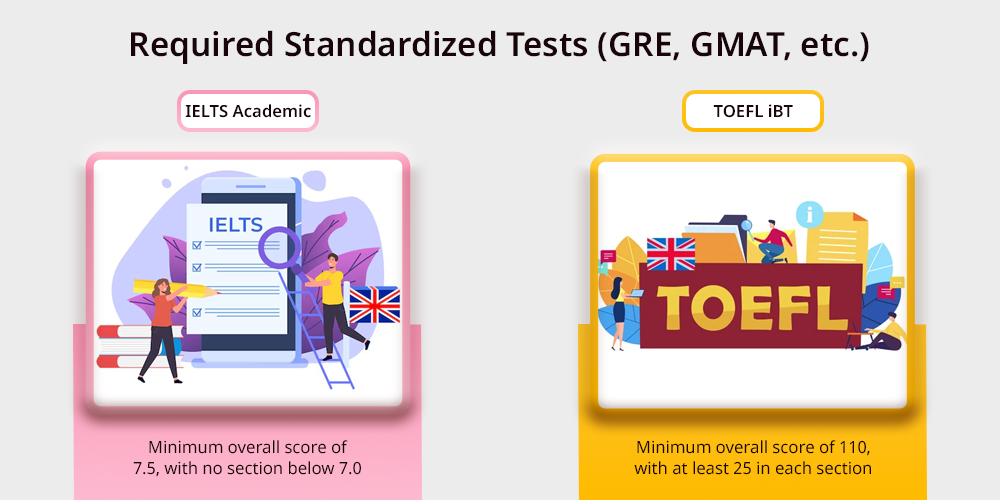
GRE or GMAT is not required by Cambridge. However, certain programs, particularly those in business (MBA), economics, and some science disciplines, may require these test scores. It is advised to check your program.
Percentile above than 90 is required for Cambridge if you are not able to fulfill their requirement as per their academic record.
English Language Proficiency (IELTS, TOEFL Requirements)
If English is not your first language, you should be well proficient in your language test.
- IELTS Academic: Minimum overall score of 7.5, with no section below 7.0
- TOEFL iBT: Minimum overall score of 110, with at least 25 in each section
Some departments may have higher requirements, so check with your specific program. If you have completed an undergraduate degree in an English-speaking country, you may be exempt from this requirement.
How to Choose the Right Program?
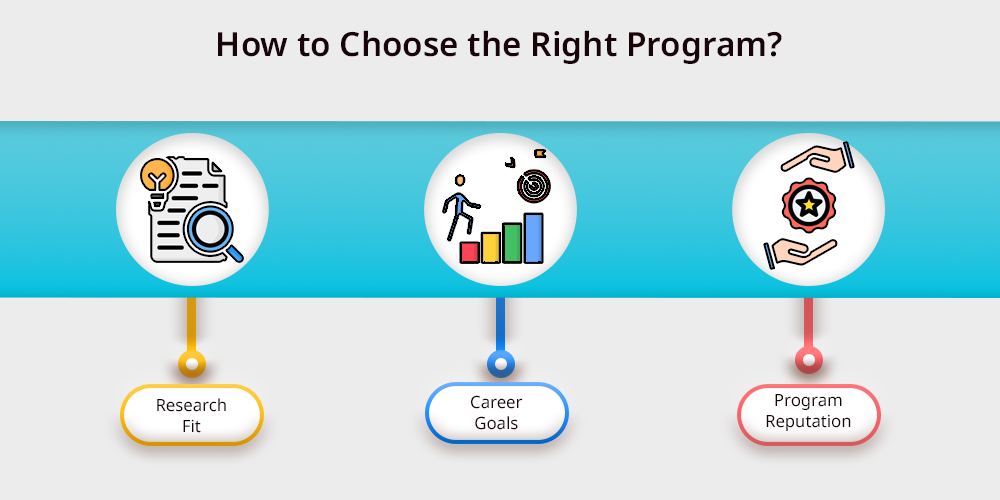
Cambridge offers a wide range of taught (master’s) and research (PhD) programs across multiple disciplines.
When selecting a program, students should consider the following:
- Research Fit
If applying for a PhD, ensure your research interests align with faculty expertise.
PhD. is only backed up with research mentorship and hard work, supervision and guidance.
Browse through all the possible department webpages to find potential supervisors (be choosy with your preference), select the one whose work aligns with yours — to ensure maximum outcome.
- Career Goals
Choose a program that supports your long-term career aspirations.
No degree is bigger than your aspiration, wait for your best chance and don’t compromise on your passion.
Some programs are more academic and research-focused, while others are more professional and industry-oriented.
So, the choice is yours — knowledge oriented or practical based course.
- Program Reputation
Some departments at Cambridge are particularly renowned for certain subjects.
So, have an in-depth research about everything.
Research about the faculty, rankings, and placement, to ensure a guaranteed success of your program.
Tips for Crafting a Strong Application
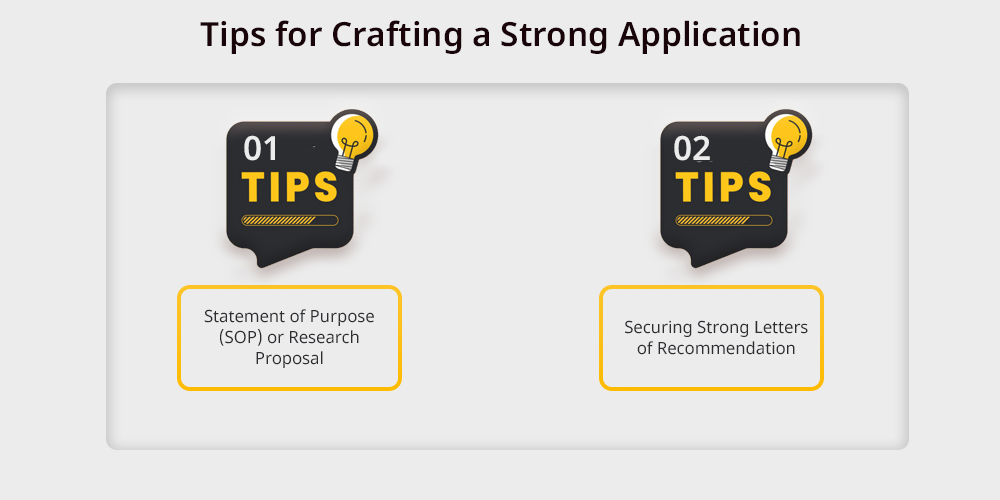
A well-prepared application is key to standing out among thousands of highly qualified applicants. Here are essential components to focus on:
1. Statement of Purpose (SOP) or Research Proposal
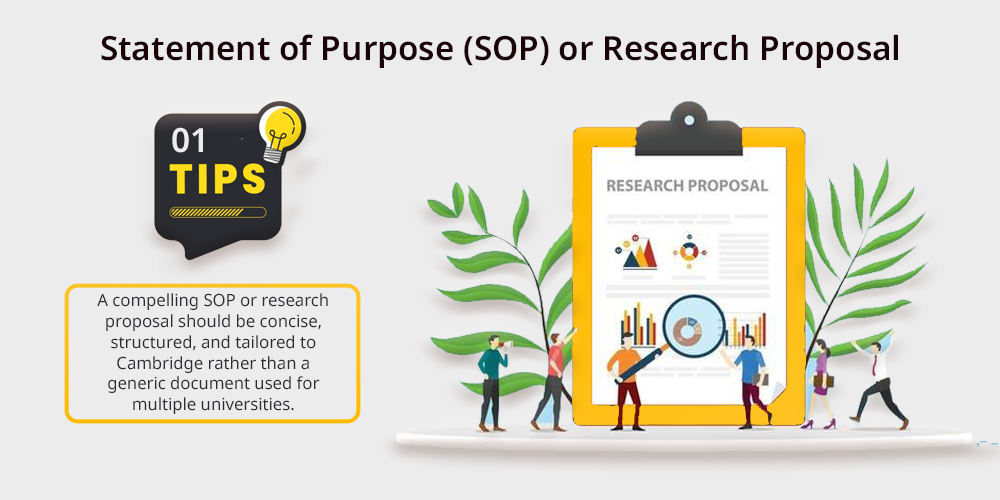
If applying for a taught master’s program, your SOP should highlight your academic background, career aspirations, why you chose Cambridge, and how the program aligns with your goals.
It is the standard procedure for the application process.
And similarly, If applying for a PhD, you will need a detailed research proposal outlining your research questions, methodology, literature review, and potential impact.
Always ensure it aligns with the expertise of faculty members in your chosen department.
But, what really is an SOP?
And how to make it well suited for the application process making sure that it stands out.
That simply means you have to write and create a compelling SOP.
A compelling SOP or research proposal should be concise, structured, and tailored to Cambridge rather than a generic document used for multiple universities.
2. Securing Strong Letters of Recommendation

Cambridge places significant weight on letters of recommendation.
one letter of recommendation is not enough!
Most programs require two to three references.
These letters are to be written preferably from professors or professionals who can speak about your academic abilities, research potential, and suitability for graduate studies.
Know whois being involved in such a big decision in your life.
Choose professors, mentors, or employers who know you well and can provide detailed insights rather than generic praise.
And, not just that, make sure that you provide your referees with sufficient time to write strong letters and supply them with relevant details about your achievements and aspirations.
How to Take Care of the Application Process and Deadlines
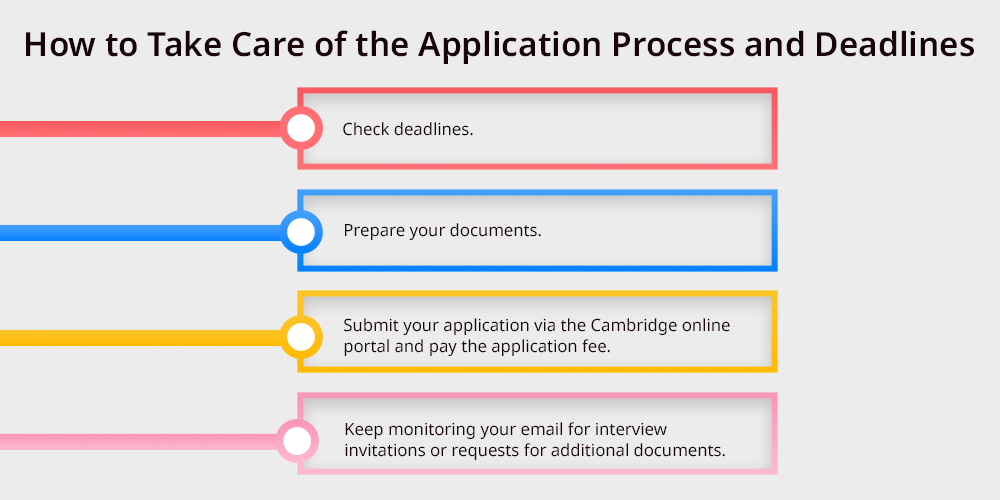
Cambridge has a rolling admission process, but it is very important to apply early as some programs fill up quickly, and scholarships have earlier deadlines.
Key steps in the application process:
- Check deadlines: Applications for most programs open in September, with deadlines typically between December and March for the following academic year.
- Prepare your documents: Have your transcripts, CV, SOP, test scores, and letters of recommendation ready, before the deadline and make sure you cross check your application and requirements.
- Submit your application via the Cambridge online portal and pay the application fee.
- Keep monitoring your email for interview invitations or requests for additional documents.
Scholarships and Financial Aid
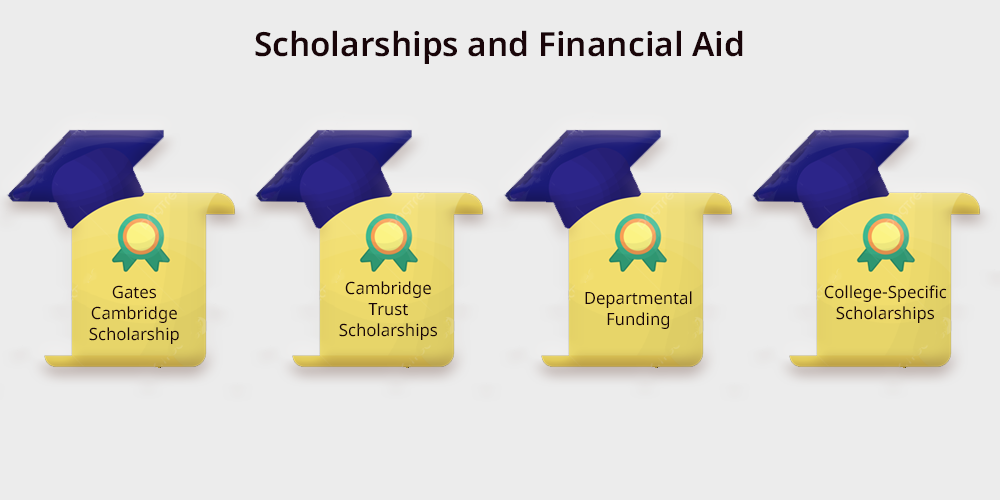
Cambridge offers various scholarships and funding options, but competition is fierce. Some notable funding sources include:
- Gates Cambridge Scholarship: Fully funded for international students, covering tuition, living expenses, and additional research grants.
- Cambridge Trust Scholarships: Comprises various funding opportunities for international and UK students.
- Departmental Funding: Many departments offer scholarships or research assistantships.
- College-Specific Scholarships: Each Cambridge college has its own funding options.
You have to be on your toes to apply for these scholarships.
It is very important to apply for funding early as many scholarships have deadlines before the program application deadline.
Interview Process
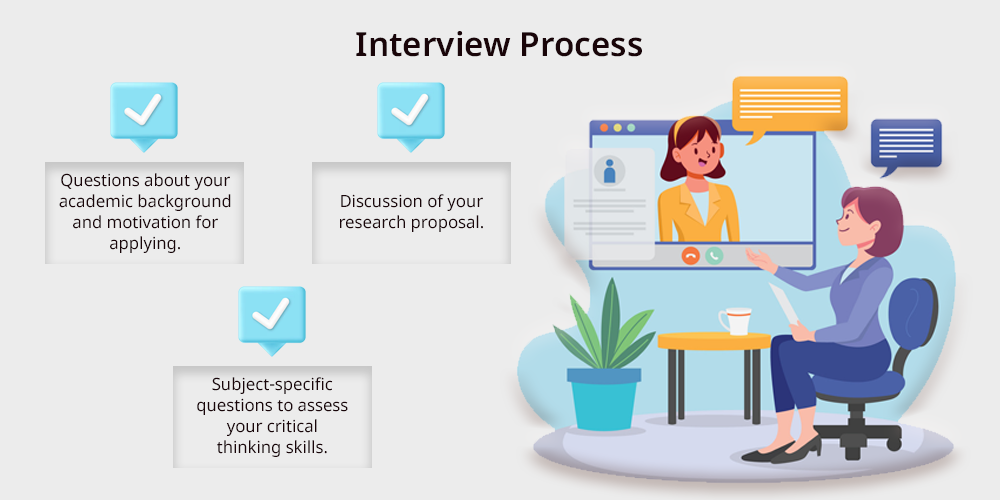
If shortlisted, you may be invited for an interview.
These interviews are particularly for research-based programs.
The interview may be conducted via Zoom or in-person , depending on the course and faculty but it generally involves:
- Questions about your academic background and motivation for applying.
- Discussion of your research proposal (for PhD applicants).
- Subject-specific questions to assess your critical thinking skills.
Be Prepared
Start by reviewing your application and practicing common interview questions for cambridge. (refer to online learning platforms and video tutorials an feedback available on youtube)
Be ready to discuss your future research or career goals in depth, make sure you know everything about what you are speaking — cross questions can break nerves altogether.
Conclusion
Getting into Cambridge’s graduate school is challenging.
But we can not deny the fact that it is a rewarding process.
Success requires strong academic credentials, a well-crafted application, compelling recommendations, and early preparation.
It’s not assured that success is guaranteed but certain steps can be followed by students to ensure that, as discussed:
By thoroughly researching programs, tailoring your application to Cambridge’s expectations, and staying organized with deadlines, you can significantly improve your chances of admission.
If Cambridge is your dream, start preparing today—your journey to one of the world’s top universities is within reach!
Just breathe and get’em.
